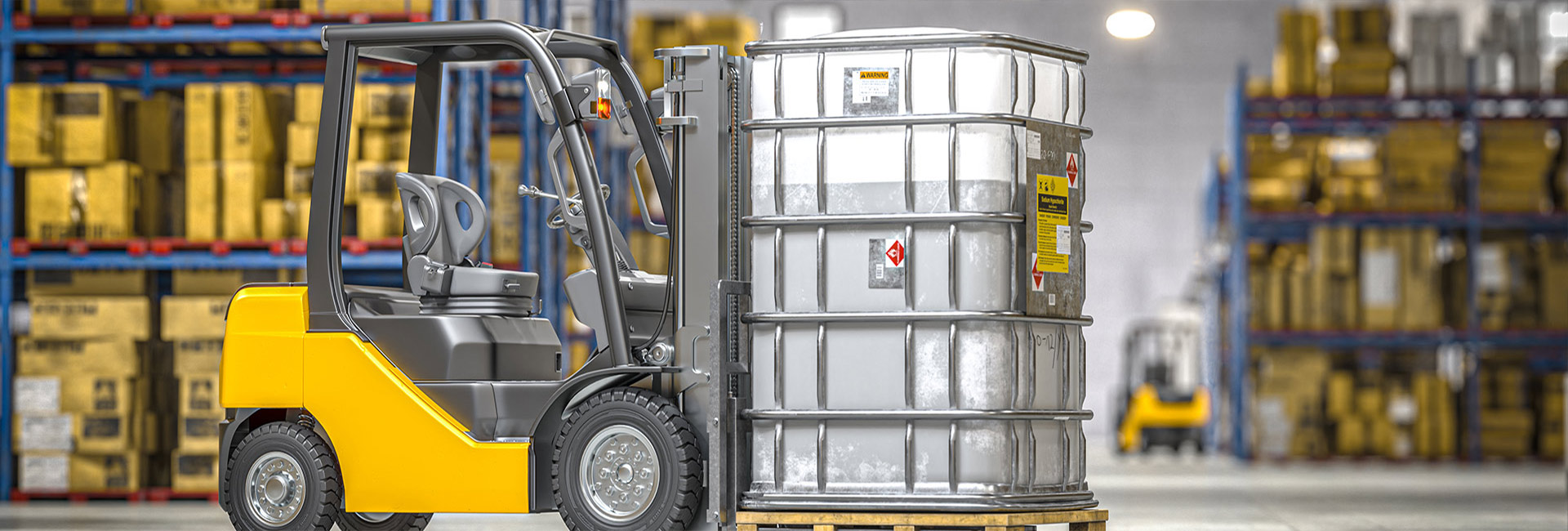
3 or 4-wheel forklifts
3-Wheel vs. 4-Wheel Forklifts: Which Should You Choose?
Three-wheel and four-wheel forklifts are the two most common types used in various industries, especially in warehouses and manufacturing plants. Both models are known for their flexibility and versatility, allowing them to operate in a wide range of conditions and handle different types of loads. However, they differ significantly in key aspects such as stability, maneuverability, and load capacity.
Choosing the right forklift can greatly impact the efficiency and safety of your business, whether you operate in logistics, distribution, or warehousing. It's important to understand the differences between the two types to make an informed decision. As experts in forklift sales and rentals with years of experience, we are here to highlight which type is best suited to your needs.
3-Wheel Forklifts
Advantages: A three-wheel forklift offers several advantages that make it an exceptional choice in certain environments. The most significant benefit is its smaller turning radius, making it ideal for navigating tight spaces. If your warehouse or workspace has narrow aisles, a three-wheeled forklift is likely the better option. Additionally, three-wheel models are generally less expensive than their four-wheel counterparts, which is a considerable advantage for those looking to minimize initial acquisition costs.
Disadvantages: While three-wheel forklifts are highly maneuverable and easier to use in smaller spaces, they have limitations regarding stability and load capacity. Most models cannot handle loads exceeding 2,500 kg, which may lead to instability, especially during turns. Furthermore, being tri-axial, these forklifts are not suitable for uneven terrain, such as gravel or dirt, because they offer less stability on such surfaces.
Best Suited For: Three-wheel forklifts excel in enclosed spaces like warehouses and retail environments with smooth floors. They are particularly effective in stores, garden centers, or other commercial settings where navigation through narrow aisles is essential. They also work well in warehouses utilizing selective racking, where precise movement of loads to high shelves is critical.
4-Wheel Forklifts
Advantages: Four-wheel forklifts are known for their stability and higher load capacity. If your workspace includes uneven terrain, a four-wheel forklift is often the better choice, as it provides enhanced stability and durability on those surfaces. These models can handle significantly larger loads—often up to 8,000 kg—making them ideal for heavier tasks. Additionally, the four-wheel design makes them more stable under heavy loads and on slopes, a crucial feature for transporting heavy materials or operating in demanding conditions.
Disadvantages: On the downside, four-wheel forklifts typically have a larger turning radius compared to three-wheeled models. This can make maneuvering in tight spaces more challenging. They are also more expensive both to purchase and maintain, which is an important consideration if your workspace does not require the greater load capacity and stability they offer.
Best Suited For: Four-wheel forklifts are perfect for industries that often transport heavy loads, such as construction, transportation, or large manufacturing facilities. They are well-suited for environments requiring movement over uneven terrain, like construction sites, or for moving large machinery and equipment. They also provide the stability needed when handling heavy or fragile materials.
Which Forklift is Right for You?
The choice between a three-wheel and four-wheel forklift depends on your specific business needs. If you work in tight spaces and require a vehicle that is more affordable and easy to maneuver, a three-wheel forklift is likely your best option. Conversely, if your tasks involve transporting large, heavy loads or operating in challenging conditions, a four-wheel forklift is the more suitable choice.
Regardless of which model you select, it's essential to accurately assess your business needs and work environment. While both types of forklifts offer versatility, selecting the right one can significantly enhance the efficiency and safety of your operations. With our extensive experience in forklift sales and rentals, we are always ready to help you find the ideal model to meet your needs.
How to contact us?
If you have any questions for us or wish to purchase a specific forklift, please contact us via the CONTACT page or send us an INQUIRY using the online form.
